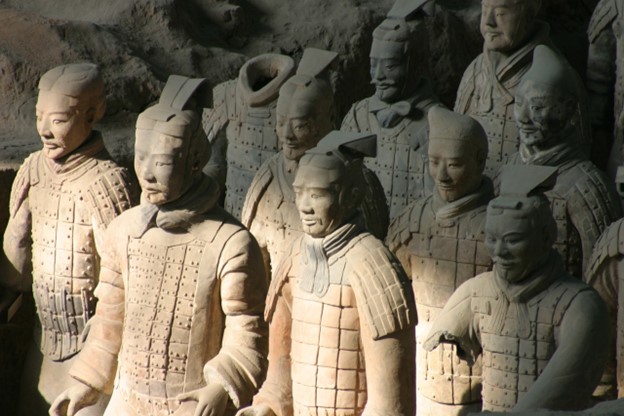Daria Novak
China operates more than 7,000 private security companies (PSCs) domestically. Recent estimates indicate its overseas PSC firms have expanded and are now operational in over 40 countries. One of those nations is the United States; another is Pakistan. The PSCs provide a way for the Chinese Communist Party (CCP) to project power overseas and, in some cases, protect its nationals. South Asia, including Pakistan, is not well-integrated into the global economy but economic and investment activities in Pakistan are of growing importance to China’s Belt and Road Initiative (BRI). That means more Chinese on Pakistani spoil. Early on in its economic expansion China depended on local Pakistani physical security forces to protect its assets and nationals working in country. With Islamabad unable to guarantee the safety of Chinese citizens, Beijing has, according to the Jamestown Foundation’s Sergey Sukhankin, “intensified its requests concerning the option of using its own security providers on Pakistani soil” this summer.
China is facing increasing scrutiny from Pakistani authorities who view its de-facto semi-independent agents in a negative light. “In addition to growing anti-Chinese sentiments (in certain parts of the country that are particularly dependent on the BRI), the deployment of Chinese PSCs in Pakistan might lead toward a surge of Sinophobia in the country, which most likely will be used by Islamic radicals and underground militants for their own purposes,” says Sukhankin. Although most security experts do not believe the PSCs will be permanently deployed there, they still will be a significant tool for China resulting in increased aggravation of the security milieu, he adds, and leading toward a weakening of ties between Islamabad and its other strategic partner, the United States.
Last year there was a 5.2% year-on-year increase in China’s outbound direct investments, a large part of which is directed to Asia and BRI-related countries in Southeast Asia, Pakistan, Bangladesh, and the United Arab Emirates. For China, South Asia serves as geopolitical curb on Indian influence in the region. The key state is Pakistan although it is not the wealthiest or most politically stable, according to the Jamestown Foundation. The country is located in a strategically important transportation and logistical artery, notes Sukhankin, but also one facing increased violence and political instability that may be constraining China’s ambitious BRI plans for the region.
Pakistan plays an outsized role due to its strategic importance since it occupies a key geopolitical position linking the Middle East, South Asia, Central Asia and the Indian Ocean. It has the second largest Muslim population after Indonesia and maintains strategic ties with both the United States and China. Pakistan in recent years has emerged as more important to China due to the improvement in US-Indian relations. After Xi Jinping assumed the presidency, he visited Pakistan to upgrade the bilateral relationship to one he labeled an “all-weather friendship” (全天候友谊).
Earlier this year, Chinese Premier Li Qiang reinforced it calling China and Pakistan “good neighbors, friends and brothers” and an investment priority. While Pakistan benefits from some of the BRI projects, officials in Islamabad are growing increasingly concerned that the influx of Chinese could threaten Pakistan’s cultural identity. An additional concern is the external financial indebtedness its assuming that, as of 2021, topped $27.4 billion. Pakistan does not want to become too dependent on China.
China faces two interconnected concerns. First, several radical Islamist groups are targeting Chinese nationals in Pakistan, and second, increased Sinophobia in key economic areas of the country such as Balochistan. There are a number of Muslim militants there who see China as exploiting the local populations and effectively “colonizing” the province. Recently, some Pakistani leaders in the area have called for ousting the Chinese for their failure to recognize the sovereignty of the local residents. This particular region is growing in importance, too, due to the copper and gold deposits China needs for modernizing its economy.
A July Jamestown Foundation report says that “well-informed Pakistan experts and security analysists believe that discontent within the Chinese military-political elite over the growing number of security incidents and attacks against Chinese nationals in Pakistan is increasing.” It quotes Ejaz Haider, a security analyst, as saying that it is “deeply disconcerting that, despite being engaged with and against Afghanistan and in Balochistan, our [Pakistani] intel capabilities are less than satisfactory.” If security can’t be improved there are concerns in Islamabad that China will send in paramilitary to protect its nationals and resources in country. It is unlikely that Pakistan will give China permission this summer to allow the permanent deployment of PSCs. China is also concerned about its image if these paramilitary troops were left there unsupervised. Even with additional Chinese security forces in country it may not be enough to make a difference in guaranteeing Chinese nationals security while working in Pakistan. The China-Pakistan bilateral relationship is undergoing increased strains at a time when China needs the relationship to offset issues with India. It could become yet another flashpoint over the coming year.
Daria Novak served in the U.S. State Dept.
Photo: Pixabay
